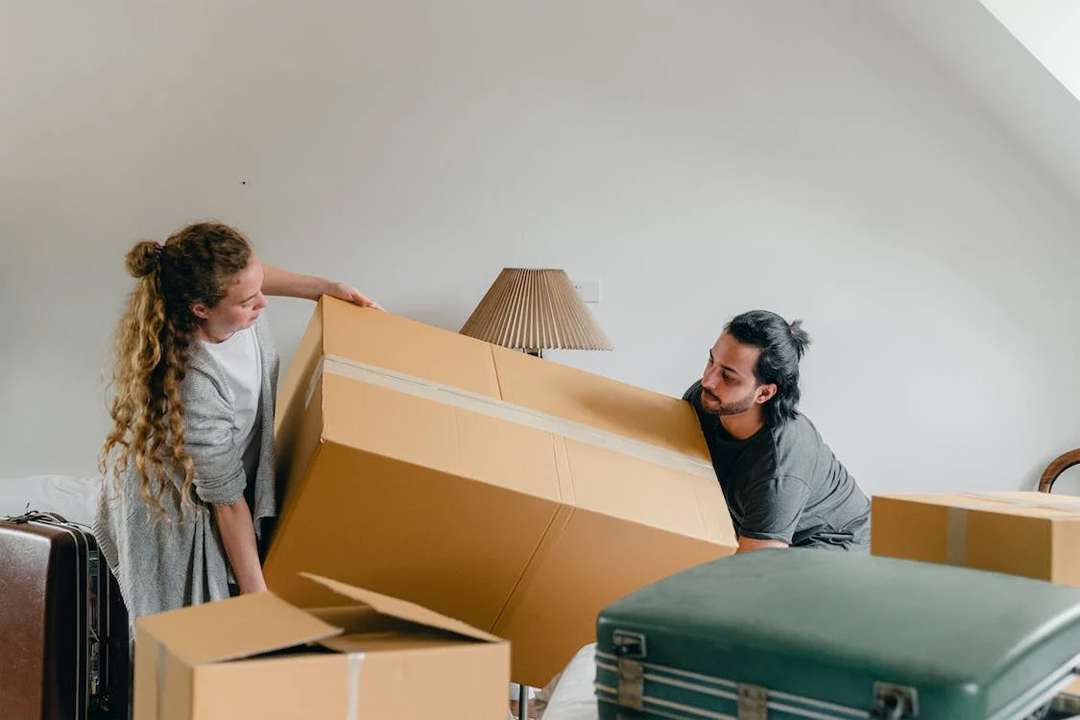
From organizing belongings ahead of time to packing essential items last minute, this comprehensive guide will provide you with all the information needed for an efficient relocation process. With these helpful instructions, you’ll be able to arrive at your new home safely and quickly – leaving plenty of energy left over for exploring local attractions or just settling into your new space!
1. Develop a plan:
To start, sit down with family members and make a game plan. Assess the size of the move, prioritize any items that need to be packed first, and set deadlines for each task. Keep in mind factors like weather and accessibility when scheduling tasks so nothing gets overlooked. Also, it would be great to create an apartment moving checklist to help you stay organized and on track. This will help ensure that nothing gets left behind and make the process more efficient. Also, consider hiring professional movers to alleviate the stress of packing and loading items. That will be a great help in making the move easier and more seamless.
2. Sort through your belongings:
The next step is to tackle sorting through all of your items. Start by going through each room and deciding which items you want to keep, donate, or discard. Be realistic about what you need and don’t try to bring everything with you—especially if it’s something that has sentimental value but no practical use. If possible, enlist family members to help out as this will save time and energy. Once everything is sorted out, locate moving boxes or bins to store the items safely during transit. Make sure these containers are labeled properly for easy identification once they reach their destination. This will help make the unpacking process much smoother.
3. Pack essential items last:
As you start to fill the moving boxes, remember to pack the essentials last. This means your laptop and its chargers, toiletries, medications, a change of clothes, and other everyday items that are necessary for everyday life should be at the top of the list when it comes time to pack them up. When everything is ready to go into the car or truck, put these items in a separate bag so they’re easily accessible throughout the move.
This will help save time and frustration throughout the process. In addition, when packing fragile items, make sure to wrap them in bubble wrap or another protective material to ensure that they arrive at the new home unscathed.
4. Protect fragile items:
For extra protection during transit, be sure to wrap fragile items like dishes and glassware in bubble wrap or moving blankets. Label each box containing breakable items with a “Fragile” sticker so that movers and family members handling them know to take care when doing so. Additionally, consider purchasing cardboard corner protectors for furniture pieces as these provide an additional layer of protection against bumps on the road. For instance, if you have a couch that needs to be transported, placing corner protectors on each end will ensure that it arrives safely at its destination.
5. Take necessary precautions:
Before hitting the road with your family and belongings in tow, make sure to take all the necessary safety precautions. Research the route ahead of time so you know how many stops and rest areas there are along the way. If you’re driving long distances, consider carpooling with family members or friends to lighten everyone’s load. Additionally, secure any loose items that may move around during transit as this can cause damage to other items or even result in an accident. Taking these extra steps will ensure that everything is packed up and ready for the big move.
6. Keep track of important documents:
Before you set off, make sure all important documents are accounted for—birth certificates, passports, Social Security cards, wills, etc.—should be placed in a secure container in your car or truck. In addition, keep a list of the items you’re bringing with you as this will prove beneficial when it comes time to file insurance claims should anything go missing or get damaged during the move. In addition, if you’re moving out of state, be sure to register your vehicle in the new location and update your driver’s license or identification card as soon as possible.
7. Research local amenities:
Once you have arrived at your destination, take some time to explore the area and familiarize yourself with what’s around. Do a bit of research online about nearby restaurants, grocery stores, parks, gyms, etc., so that you are prepared for the transition into living in the new city. Additionally, check out local events like farmers’ markets and festivals to get to know the city better. Doing your homework ahead of time will help make this move much less stressful.
8. Hire professional movers:
Moving can be an overwhelming experience, but with the right preparation and research, it doesn’t have to be. By following these eight steps you are sure to make your move a smooth one. From keeping track of important documents to hiring professional movers for larger moves, there is no shortage of things that need to be taken care of before setting off on your journey.
Even if this is not your first time moving, taking the extra effort will help ensure everything arrives at its destination safely and without any damage. With all the details accounted for ahead of time, you can rest assured knowing you have done everything possible to make this transition as stress-free as possible!
Comments
comments